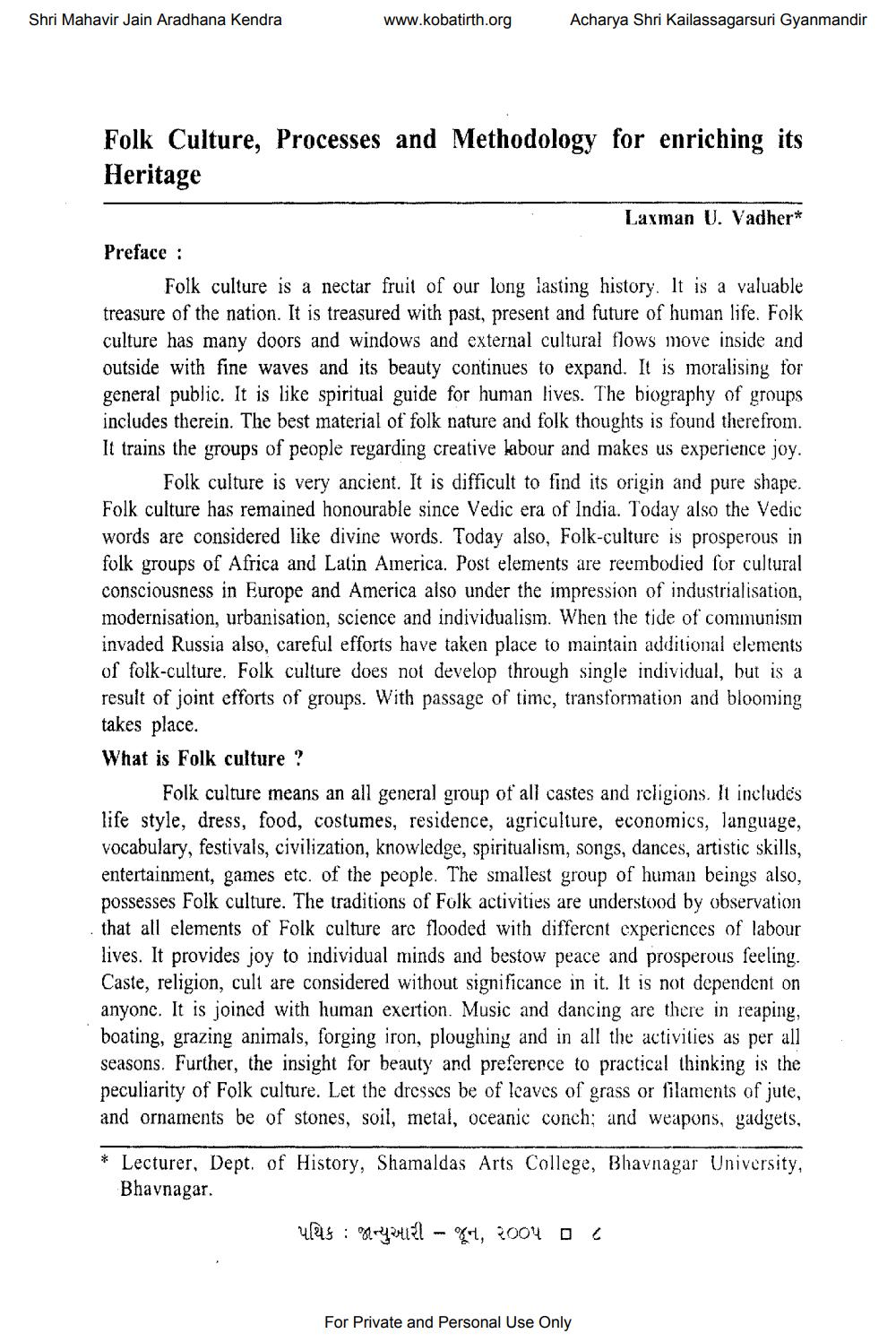________________
Shri Mahavir Jain Aradhana Kendra
www.kobatirth.org
Acharya Shri Kailassagarsuri Gyanmandir
Folk Culture, Processes and Methodology for enriching its Heritage
Laxman U. Vadher*
Preface :
Folk culture is a nectar fruit of our long lasting history. It is a valuable treasure of the nation. It is treasured with past, present and future of human life. Folk culture has many doors and windows and external cultural flows move inside and outside with fine waves and its beauty continues to expand. It is moralising for general public. It is like spiritual guide for human lives. The biography of groups includes therein. The best material of folk nature and folk thoughts is found therefrom. It trains the groups of people regarding creative labour and makes us experience joy.
Folk culture is very ancient. It is difficult to find its origin and pure shape. Folk culture has remained honourable since Vedic era of India. Today also the Vedic words are considered like divine words. Today also, Folk-culture is prosperous in folk groups of Africa and Latin America. Post elements are reembodied for cultural consciousness in Europe and America also under the impression of industrialisation, modernisation, urbanisation, science and individualism. When the tide of communism invaded Russia also, careful efforts have taken place to maintain additional elements of folk-culture. Folk culture does not develop through single individual, but is a result of joint efforts of groups. With passage of time, transformation and blooming takes place. What is Folk culture ?
Folk culture means an all general group of all castes and religions. It includes life style, dress, food, costumes, residence, agriculture, economics, language, vocabulary, festivals, civilization, knowledge, spiritualism, songs, dances, artistic skills, entertainment, games etc. of the people. The smallest group of human beings also, possesses Folk culture. The traditions of Folk activities are understood by observation that all elements of Folk culture arc flooded with different experiences of labour lives. It provides joy to individual minds and bestow peace and prosperous feeling. Caste, religion, cult are considered without significance in it. It is not dependent on anyone. It is joined with human exertion. Music and dancing are there in reaping, boating, grazing animals, forging iron, ploughing and in all the activities as per all seasons. Further, the insight for beauty and preference to practical thinking is the peculiarity of Folk culture. Let the dresses be of leaves of grass or filaments of jute, and ornaments be of stones, soil, metal, oceanic conch; and weapons, gadgets,
* Lecturer, Dept. of History, Shamaldas Arts College, Bhavnagar University,
Bhavnagar.
as: Myaud -
4, 2004 o C
For Private and Personal Use Only




